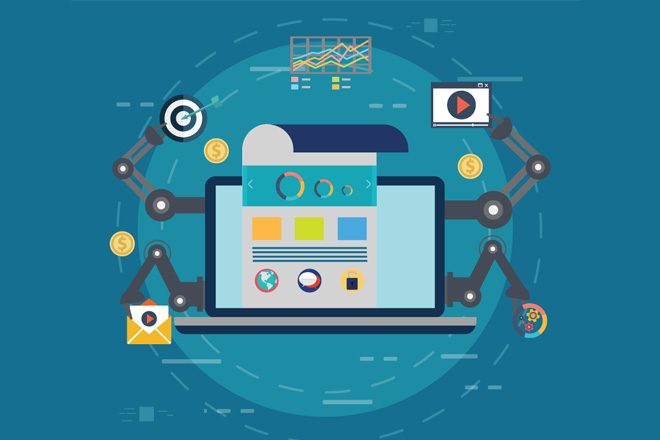We cannot ignore the COVID-19 health crisis. Still, we must also recognise the shockwaves the pandemic has sent across the global business community testing infrastructure, resources and economic models of organisations of all kinds. McKinsey recently predicted that global GDP growth would drop from 2.5 percent to 2 percent, potentially resulting in a worldwide recession. For businesses large and small, this crisis has brought about a fundamental change to the way they operate, where finding efficiencies and utilising the creative and strategic strengths of the workforce is crucial.
The businesses that survive this crisis will be ones that in an agile manner, make better use of resources with a focus on innovative thinking
An abrupt shift in working practices, processes and systems
As governments took action to limit the spread of the disease, workforces were ordered home and all but essential businesses closed. It has brought about an abrupt shift in the way we work, and leaders were challenged to pivot businesses to a more digital world and find new ways of working and serving customers to keep business operations going.
For the operations teams this meant quickly adjusting critical operations, HR focussed on employee welfare, and customer care teams upscaled to manage increased customer support demand.
However, critical to the success of all these groups is the IT function. IT teams were required to set up and scale remote working in a matter of days, ensure existing infrastructure could handle the additional stresses and where required, bring in new providers to better manage and support a suddenly distributed workforce.
Quick and decisive action on the part of the IT organisation, has allowed many businesses to maintain a level of productivity and mitigate impacts that could have a long-tail effect on the company. However, the businesses that survive this crisis will be ones that in an agile manner, make better use of resources with a focus on innovative thinking while ensuring business continuity.
Protect critical functions and deliver business continuity with RPA
RPA can help mitigate disruption by enabling businesses to stay connected across teams and systems and allowing required processes to function better and faster, bringing greater human capacity offering stability in times of uncertainty.
Software bots, or digital workers, work side-by-side with human workers to automate repetitive, mundane tasks and free up valuable time for employees to focus on innovation-led tasks and creative problem-solving. Faced with a reduced workforce, RPA can help maintain business continuity with a 24/7 digital workforce which rapidly scales along with business demand and alleviates workload from labour-intensive tasks.
Over 20 percent of enterprises globally have deployed RPA and on average see a 30-40 percent improvement in operational metrics such as accuracy, cycle times and productivity. At a time when resources are limited, these gains can deliver invaluable benefits to enterprises.
Because RPA bots work the way people do, it’s possible to automate any ERP process. No changes to process flows are required as bots can see, compare, reference and establish patterns, just the way employees do. Automating business-critical ERP processes offers a flexible, scalable workforce with always-on capacity and frees up human workers to focus on higher-level, value-added work. These digital workers are beneficial across all areas of the enterprise, from core back-office systems such as HR and finance to front office customer relationship management and anything in between, including controlling machinery and physical systems.
Supporting the customer, securing brand loyalty
Customer support functions are crucial during times of crisis. The experience delivered at this time can provide lifetime brand loyalty or result in a significant increase in customer churn. The present challenge is two-fold – enabling office-based workers with the tools and systems necessary to perform their roles while at home and handling an inevitable surge in customer calls.
For example, with no choice but to cancel flights, airlines have seen a spike in customer support cases with passengers seeking refunds or credit, with prolonged hold times for customer service. This has made it difficult for existing staff to handle a surge in demand which could negatively affect customer experience and brand reputations as well as trigger fines for non-compliance. To reduce cash outflow, many airlines have added e-voucher refunds for future flights, adding to the processing complexity.
With RPA, airlines have been able to reduce the manual processing of vouchers from 20 minutes to less than three minutes. An AI bot automatically extracts ticket information from customer emails on file, opens booking and refund applications and validates the passenger name record, customer itinerary, airline reward, coupon status and commission to process requests and issue an e-voucher – helping to ease the burden to customer service departments, massively increasing efficiency and ultimately, improving customer satisfaction.
Digitally transform finance and accounting
The impact of COVID-19 is requiring business plans and financial forecasts to be adjusted across all industries. At a time of immense economic uncertainty, the pressure is on to ensure finance operations are more accurate, efficient and compliant than ever before.
Deploying a digital workforce frees up valuable time for finance professionals to focus on critical high-value strategic tasks
Automating financial and accounting processes reduces the manual touch points while eliminating human errors and improving data validation across systems. With RPA, enterprises can automate repetitive tasks, access unstructured data (including within scanned documents) and tap into disparate data sources across legacy systems in the business. The applications for RPA within the finance department are many and varied and it is predicted that up to 50 percent of manual financial processes are likely to be automated in the next few years.
Deploying a digital workforce frees up valuable time for finance professionals to focus on critical high-value strategic tasks such as financial planning and analysis, helping to support the business as it adapts to fast-changing economic circumstances.
During this time of unparalleled economic uncertainty, more than ever, we need increased critical thinking to create innovation-driven value in business. Enterpries which harness the power of intelligent automation will find it easier to navigate through these times with greater certainty, speed and accuracy and emerge stronger. The digital workforce will help minimise the current levels of disruption and uncover new opportunities for our economies, customers and communities.




